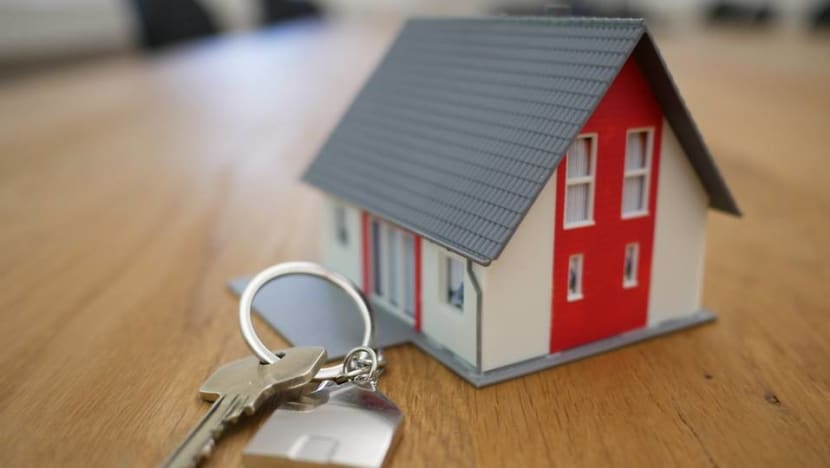commentary Commentary
Commentary: When do you really need a property agent?
A controversial case involving a property agent suspended for unethical behaviour has provoked discussion over whether it’s better to sell your house yourself. But should you? Irene Hoe provides some perspective.

(Photo: 99.co)
SINGAPORE: “Follow the money” is likely the most memorable advice ever copped from a movie. Those words came from All The President’s Men (1976).
Today, close to two generations removed from its origins, it probably means little more than to get the best price, go for the highest-paying job, or snag the richest spouse.
A property agent was recently fined S$30,000 and suspended for 12 months for unprofessional and unethical behaviour. He had certainly done his best to follow the money, in the sense closest to the original cynical meaning.
In sum, he sought to maximise the benefit to himself at the expense of his client.
READ: Property agent commission in Singapore: How much should you pay?
Such cases may nudge wannabe buyers or sellers to consider doing it themselves, or as a pithy pal put it: “Ownself buy. Ownself sell. Save money.” Certainly, there is no regulation barring do-it-yourself (DIY) deals.
But can you and should you? There is no lack of information from websites such as PropertyGuru competing with more traditional advertising sources. They can provide a rough gauge but how, for instance, would one arrive at what would be a fair price?
WHAT DO PROPERTY AGENTS DO AGAIN?
There has to be a compelling reason that there are around 30,000 housing agents registered with the Council for Estate Agencies (CEA). Can we do what they undertake each day? Or will engaging a property agent score you advantages worth the price?
I turned to contacts in the business, and to friends who had recently been in the market or who are, like a close relative of mine, currently house-hunting.
READ: Commentary: Why residential property prices won’t be coming down despite cooling measures
Estate agent Elaine Tan, a long-time friend, spelt out what she and her colleagues do: “We are constantly talking to buyers and sellers. So we have a feel for market sentiment, besides being equipped with data and market research from the company.”
“The sales team is out on weekends, showcasing homes that the company is marketing. We are out there learning and we come across different prospects with myriad requirements.”
So a professional agent should be in a good position to advise clients to sell or buy at a fair price. Many factors come into play, she said, including whether it is a “hot home” and likely to be snapped up, whether the market is moving in that area, and how urgently the seller wants a deal.

She cited two recent sales in the Tanglin area, an area which she is most familiar with. A flat on the seventh floor went for S$2.35 million in August. Yet, a second-floor unit in the same estate sold in July for S$3.28 million.
Both apartments were the same size. So why the huge price difference? Were there S$900,000 worth of renovations in the higher-priced flat?
Read: Commentary: Who’s buying private property after last year’s cooling measures?
A sampling of other pertinent factors might include privacy (can you look into it from a neighbouring flat?) greenery, noise (does it face the car park or the main road?), morning/afternoon sun, and if the seller needed to sell urgently.
At this stage, the buyer’s needs and wants haven’t even been considered.
THE INTERNET MAKES DIY DEALS POSSIBLE
The pro-DIY camp would argue that if you were selling your home, information available online can help you navigate what such sales would entail and how long it might take. For patient sellers who are willing to learn, it is possible but not easy.
Whether you are buying or selling, what would the price be? The highest price transacted recently for a similar property? Or less, because it has not been extensively or recently renovated?

I encountered this very question recently in an after-lunch conversation with someone considering selling the home she had inherited. She thought of asking for S$15 million. Another person thought S$10 million or less was closer to the mark.
The owner had never bought or sold a property before. Here, it is clear that she needs professional assistance.
READ: Commentary: Did aggressive land bidding by Chinese developers push up Singapore property prices?
If you think you can just be guided by data from the Urban Redevelopment Authority or what banks will provide as an “indicative valuation”, be aware that the bank bases the valuation on details such as the address, size, number of rooms, renovated or otherwise.
Coming back to those two flats in the Tanglin area, what if the indicative valuation had been S$2.85 million for both? Would the S$3.28 million home have been sold at a lower potential? Would the S$2.35 million flat owner be keen to wait out for a buyer at the indicative price of S$2.85 million?
BUT WHAT IF YOU’RE LAZY?
And now, a confession. I can be extremely lazy when it comes to anything other than research, writing and editing. Despite having absorbed considerable knowledge from conversations over the years with a close relative and friends in the property business, I have no stomach for the due diligence required to see the deal through.
I have had to confront this issue because my husband wants to sell our home. I am definitely going to turn to professionals because they have different perspectives and can pose useful questions which I might not have considered.

My friend Elaine offers a recent experience. “My client was looking for an apartment with a view of the pool. One flat was on a low floor; the other, on the top floor; the price rising by S$5,000 per floor.
‘So I asked her: “Do you want to be sitting on your sofa and having a view of the pool? Or just to be able to see the pool when you step out on the balcony and look down?”
“My client bought the home on the lower floor and saved a considerable sum.”
It is an interesting perspective. But I would definitely be wary of agents who might be acting in their own interests instead of mine.
READ: Commentary: A look at HDB flat affordability after recent housing policy moves
How to weed them out? For a start, you can check the Council of Estate Agents website for information on your agent of choice. You can see what property deals they have done and whether they square with their claims.
Be upfront. Tell them you do plan to speak to buyers or sellers for whom they have done work.
If the agents you are considering balk at that or are displeased, that may not be disqualifying but could tell you a lot about their character or attitude.
In the days since I started doing research ahead of writing this commentary, the buy/sell question has become intensely personal. My home of nearly 36 years had been up for an en bloc sale. That bid ended on Oct 22.
READ: Commentary: What happens when the en bloc musical chairs stop?
So my final piece of advice is this. First, ask around in your social or work circles. You may find that someone you have known for a long time is now in the property business.
Shamelessly ask for advice. Take notes. Read up. There is a wealth of information online. That may not help you to DIY your own deal, but you will come off better informed.
More importantly, if you find that you have to depend on a stranger to handle your sale or purchase, remember that if you are in a hurry to sell, you are more likely to be conned by an unscrupulous double-dealing property agent.
Just remember, it’s your money that’s on the line.
Irene Hoe is a writer, editor and coach and has been a journalist for many decades.













